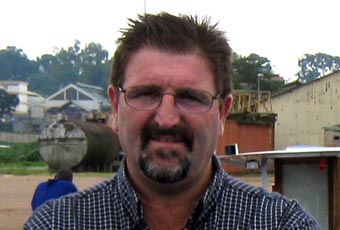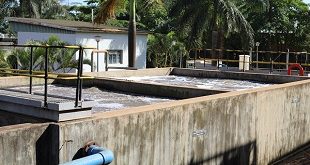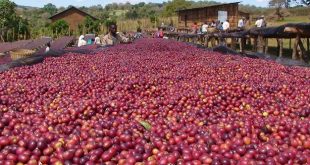
By Patrick Kagenda
New ferry raises Uganda’s hope of sailing big on Lake Victoria
Since the defunct Uganda Railways Corporation’s marine vessel MV Kabalega, which sunk on Lake Victoria after a collision with its sister ship MV Kawa on May 8, 2005 and the grounding of both MV Pamba and MV Kawa no other vessel has flown the Ugandan flag until MV Patricia, owned by Power Marine Consultants, set sail. The Independent’s Patrick Kagenda talked to Brian Power, the CEO of Power Marine Consultants.
What is the history of Mv Patricia?
She was bought in 1935 for the Kenya Railways and served as a raft in Kisumu and between the late 1960`s and early 1970`s, she was taken out of commission and was laid up in Kisumu. We acquired her late last year 2008 and took delivery in February 2009 when we commenced working on her by fixing new engines and reinforced every thing and later moved it to Port bell for official launching. The total cost of this investment is US$ 320,000 (Shs720 million).
What is Mv Patricia’s carrying capacity and where will it sail to?
Mv Patricia has a carrying capacity of 100 metric tones that is to say 4 trucks. It is a lose cargo ship and can’t carry containers because it is a small ship. The most economical routes would be to sail from Port bell, Jinja, Kisumu, Bukoba, and Ssese Islands. Due to the length of the journey to Mwanza we won’t sail there as it would not be cost effective because this would mean we charge too much for the cargo.
What are the charges per ton of cargo?
It is all negotiable between each individual client. Bulky cargo is going to be a bit more expensive. If its cargo that is going to fill the ship it’s going to be less expensive. We will negotiate a rate with each client individually.
What excited you into investing in marine transport on Lake Victoria?
We came to Uganda in April 2008 to look at the ferries and its here that we saw the potential of what was here and the lack of use of the potential. We then moved part of our company to here in August and we started doing our research and see how to develop the routes around.
What challenges have you encountered so far?
The biggest challenge is that there is no real history about anything. You have to start right from the bottom and you have to dig your way through. You also get a lot of people that come making big promises that do not ever materialize. However, when we started speaking to the right people we started going ahead. When people at the Uganda Investment Authority saw that we were serious investors in the country they helped us to meet the minister of Transport John Nasasira and his deputy John Byabagambi and we have had a good working relationship with them.
What is the reaction from both government and the public on your establishment as a marine transport provider?
There has been a lot of interest from private people and government to use the expertise that we brought here with us and as being the first private marine transport company to operate in Uganda. We are also the first company that comes with a really strong concentration of expertise. We are both an operating company and a consultancy. What comes from this is the two parts of this company. Power Marine consultancy that is operating the vessel and the Victoria Marine Consultancy under which we do the entire consultancy work for marine issues.
What shortcomings have you found in the marine transport industry in Uganda?
There is a massive shortage of qualified marine infrastructure development in the country. We want to bring that in but not through bringing foreigners into the country but through training Ugandans. We will look for the people who worked in Uganda Railways Corporation before it closed down to be taken over by Rift Valley Railways (RVR). Those are the people that we are going to start looking for once we come to an agreement to redevelop the whole area. Our end result is going to be not only operating ships but to help and assist where we can to redevelop the ports and infrastructure that surrounds them. We have spoken to government and they are interested, however they are in a position where they have to wait for the RVR situation to be resolved because I understand they are going to put everything to tender and all we want is that opportunity to tender.
What are your strengths?
One of our strengths is that we are a Ugandan based company, an African based company and we are for the development of Africa as an entity and we are for the development of the Ugandan people.
 The Independent Uganda: You get the Truth we Pay the Price
The Independent Uganda: You get the Truth we Pay the Price



